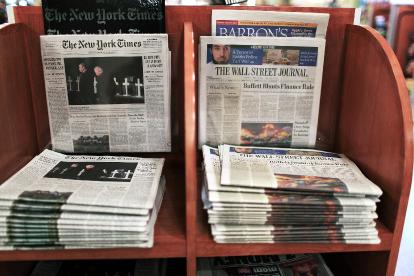Independent thinking more than casting a hopeless third party vote

So you've determined that you're really an Independent who no longer wants to be caught up in the partisan rancor that has become the hallmark of Washginton politics. Neither do you support the big money interests that have rolled over the two-party system. Instead, you want to support clean candidates who are beholden only to the public they are serving and to the nation that has nurtured them.
The discouraging reality is that the 112th Congress includes only two members with the word Independent next to their names – and one of them is called an Independent Democrat (Joe Lieberman). In today’s big money world of party-driven politics, it’s tough for Independents to survive against the power politics of the Republican and Democratic money machines allayed against third party candidates. At the presidential level, Ross Perot was the last challenger to break the 15 percent mark , and that was nearly 20 years ago. Almost 100 years ago, Teddy Roosevelt won a thus far unmatched 27 percent of the vote as presidential candidate of the independent Bull Moose (or Progressive) Party.
The state of California had its usual array of independent candidates for governor in 2010, none of whom achieved more than 1.7 percent of the popular vote despite the known diversity and quirkiness of the state’s electorate.
We have all become victims of an entrenched, self-generating two-party system. Even today’s so-called Tea Party was shown in a recent study by researchers David E. Campbell of Notre Dame and Robert D. Putnam of Harvard to be virtually indistinguishable from its big brother Republican party (though this study seems to implicitly focus on the post-Obama development of the Tea Party, and not the pre-Obama, Ron Paul-inspired tea party movement which launched in 2007).
Offshoot parties, if powerful enough, may change the equation of an election enough to help ensure success by candidates from the opposite political spectrum. But, on either state or national levels and with the rare exceptions of name-brand contenders such as Minnesota Governor Jesse Ventura, third party candidates do not win elections.
However, acting on your non-partisan impulses can be satisfied despite the fact that there may be no Independent candidates in clear view, by thinking independently. For example, you can choose to broaden your thinking by considering the ideas of think tanks, academics and columnists you have heretofore rejected because they represent “the other side.” If you’re a progressive, start giving serious consideration to spokesmen from the American Enterprise Institute, right or right-center columnists such as David Brooks and George Wills, and economists from George Mason University or Pepperdine’s Business School. If you’re conservative, imbibe in left or left-center columnists such as Paul Krugman and E.J. Dionne, Harvard’s John F. Kennedy School of Government, and the Pew Research Center. Liberals can spend time with the editorial page of the Wall St. Journal and Conservatives can do the same with the New York Times. You might be surprised at what you learn. It’s not a question of becoming convinced or changed as a person; it’s the idea of increasing your independence by widening your perspective.
It’s my personal practice to read and/or watch certain media outlets only to understand the degree to which they stretch the truth. These include certain anchors on Fox News, MSNBC and now Current TV, and such print publications as Hot Air and Daily Kos. By comparing what I view as propaganda-oriented media outlets with more journalistically mainstream sources, I create my own independent filter that helps clarify my thinking amidst the fog of hype and big money influence that marks today’s media environment.
Independence is more than just a label. It’s also a mindset that each of us has the right and responsibility to achieve.




